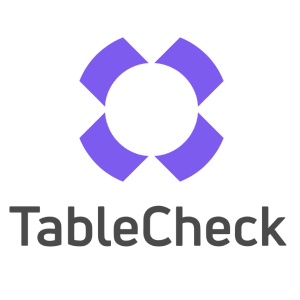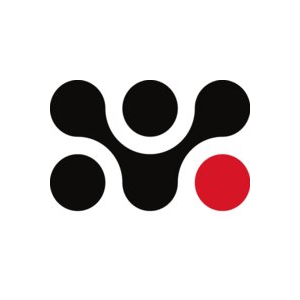Updated February 12, 2025
How to Prepare for Casual Interviews in Japan: Pro Tips from Career Coach
In this article: 📝
- Introduction
- What is a Casual Interview?
- How “Casual Interviews” became a trend in Japan
- What you need to know about Casual Interviews in 2025
- How to get a casual interview
- How to Prepare for a Casual Interview
- Gather Info
- What should I wear?
- Prepare Questions
- Practice your Self Intro
- General Etiquette for Casual Interviews
- During the Casual Interview
- What to do after a Casual Interview
- Common Mistakes and How to Avoid Them
- Focusing too much on the ‘casual’ in “casual interview”
- Thinking you’re only there to impress them
- Pro Tips - Beyond the Basics
- Conclusion
Introduction
You see a notification on your phone from a company. It says they want to have a casual interview. You think, “Great! I don’t need to worry too much since it’s a casual interview”. Once you get in the actual call, it doesn't quite feel like what you’d expected. You’re wondering if this is the casual interview or if there was a miscommunication…
What is a Casual Interview?
In Japan, カジュアル面談 kajyuaru mendan or “casual interview” is meant to be an informal conversation between the company and the applicant. The reality is companies use it in different ways, sometimes to mean preliminary discussion that comes before the actual interview process, other times just as a way of emphasizing the expected level of engagement during the interview.
It’s a good idea to clarify first, that in Japanese there are two words that roughly mean “interview”; one is 面接 mensetsu and the other is a 面談 mendan. Mensetsu is what you typically imagine as a formal job interview where there is a company that assesses if the candidate is a good fit for the company/role. Interviewers ask questions to the candidate and they are expected to respond correctly. On the other hand, mendan is still an interview but one where the candidate and the company speak openly and that they are equals in the situation. This means that essentially, mendan is already like a casual interview. So why do they add “casual”? To really understand what it is, you need to know a bit of context in how casual interviews came about in Japan.
How “Casual Interviews” became a trend in Japan
The rise of casual interviews in Japan came about with the rise of Wantedly, a LinkedIn-like platform that gained popularity around 2016. Before Wantedly, many companies relied heavily on recruitment agencies to search for talent but especially for startups, this was an expensive and inefficient method of hiring. Wantedly became a game changer for startups and for smaller tech companies by giving space for them to showcase their culture and connect with candidates directly.
Another one of its standout features was a feature that allowed job seekers to casually talk to the companies and founders before deciding if they wanted to apply to the company. This concept quickly became a trend, spreading beyond the platform. These informal conversations which did not count as part of the official hiring process helped candidates choose a low-pressure option of learning about companies while allowing companies to organically attract more talent.
What you need to know about Casual Interviews in 2025
It’s been almost a decade since then, and the state of the job market and recruitment strategies have shifted. While the term “Casual Interview” has remained, its function and format have evolved and often adapted to the preference of companies. This might explain why some job seekers notice that their “casual interview” feels far from casual.
What should you expect in a casual interview?
It may or may not be part of the actual recruitment process - Some companies use casual interviews as a way to attract talent while others use it as a screening process.
Topics can vary - Some casual interviews are broad conversations and others can include more skill-related questions.
Communication style and structure can vary, too - Expect a blend of structured and unstructured conversation with some formality.
A company presentation could take up a good portion of the time - Some casual interviews are used as ways for companies to attract talent so they might prepare a presentation on who they are.
Expect to be proactive about following up - If the casual interview is meant to be preliminary conversation, you may be expected to take the next steps to apply.
So, what do you do if you want to schedule one?
How to get a casual interview
If you’re interested in having a preliminary conversation before deciding to proceed with the actual recruitment process, there are a few things you can do. The first is to check on the company’s recruitment page. There may be a button that says “I want to have a casual interview” that is separate from the “Apply” button. Other times, you might find at the bottom of the application page a section for including any additional notes. Some companies will ask applicants to specify in the section to request for one. If you’re applying via another platform, check if there is an option for “Casual Interview”. If a company is active on social media, especially if the company seems small, asking if you could have a casual interview could be an option.
In many cases, you might find yourself being invited to a casual interview even before you decide if you want it or not. Let’s talk more about how to get ready for one.
How to Prepare for a Casual Interview
Gather Info
The first step to preparing for a casual interview is to understand if this is part of the actual interview process or not. As mentioned above, in some cases a company may use the term loosely to give an idea that they are looking for a conversational style interview. However, it may still be counted as an official interview process. Regardless of the interview being part of the actual process, here are questions you should have answers to:
How long is the interview for?
Who will be interviewing you?
What are the steps that follow after this interview?
To find answers, first do online research in English and Japanese. Many tech companies provide accessible resources to potential candidates on what their hiring process looks like. It’s a very good idea to take advantage of them and to get a head start. If there is not information available online, the next step is to ask your point of contact for some. Stick to polite but succinct email when asking questions.
What should I wear?
Showing up as your best self is always a good idea, including being mindful of your attire. While there are some variation, below is a rule of thumb if you’re feeling lost:
Smart casual in most cases - Think a button-down shirt, clean pants, or a dress.
With a more traditional Japanese company, business casual. Japanese office attire tends to prefer neutral tones and minimal patterns.
A practical way to see a company’s dress code is to check group pictures of the employees on their website. Dress slightly more formally and you’re good to go.
To learn more in detail about appropriate attire while job searching in Japan, check out: What to wear to a job interview in Japan [2024 Guide]
Prepare Questions
One tip for anyone who’s looking to impress the interviewer for any interview is to ask the right question to the right person. So how do you do that for a casual interview? You can start off by learning about the company’s business and how they relate to the position you’re interested in applying for. Is your position related to an existing product or service? Or is it something new? Instead of simply reading about the company, think about how that information is relevant to the position.
Good questions can often come naturally from the conversation. Anticipating questions they may ask you in advance can help you come up with questions to ask them in return. To learn more about common interview questions in Japan, take a look at Top Interview Questions in Japan: Are You Ready?
In addition, look for staff interviews, CEO and founder interviews to make some observations about the company culture. When companies publish these interviews themselves, it’s a clear sign that the companies want readers to become potential candidates. This means that most likely, there are perspectives and opinions that represent what the company values. By reading these articles, you can ask more in depth questions about the company’s culture and value by mentioning what you’ve read in these articles. For example, asking “What changes has your company made in helping the environment be more inclusive?” is received differently when you preface this question by mentioning, “I read in an interview article about one of the recent developers that they’ve appreciated the attention to inclusivity in the company.”
Last but not least, learning about recent updates is an effective way to prepare for a casual interview. Check for any recent press releases, and any social media updates. Have they launched a new service? Is there an important milestone they’ve reached as a company? Use this knowledge to ask questions during the interview. Like what I mentioned previously, always remember to let the interviewers know where you saw the information.
Practice your Self Intro
How well you start the interview has everything to do with the flow of the conversation, in short you want to have a well-prepared self introduction. It’s not too difficult to bomb a self intro and the simple solution is to practice saying it out loud. If you haven’t sent your resume in yet, the process for preparation is straightforward. Write down what you plan to say and practice saying it out loud a few times. Casual interviews are not very long and for both parties, it’s a casual way to get to know each other so think about what you want to highlight about yourself. If you were to talk to them again in a week, what is the one thing you would like them to remember you for?
General Etiquette for Casual Interviews
While you might get caught up in the word “casual,” every interview, casual or not, should be treated like an interview. This means going into it with professionalism and respecting general rules. Here are a few to keep in mind:
Be punctual. In Japan, punctuality is extremely important. If a call has been scheduled for 4:30, be ready to speak exactly at 4:30
Be polite. As a short introduction, you could say 「本日はよろしくお願いします 」or “Thank you for your time today.”
Make a short and clear self intro. Be mindful of the time when you talk about yourself at the beginning.
Don’t Interrupt. Interruptions are generally frowned upon in Japanese culture so if you want to comment or ask questions, hold them until the speaker is finished.
Address a Japanese person by using “san”. Adding “san” after a person’s surname is considered polite.
During the Casual Interview
During the casual interview, there are several things you can expect. First, they will ask you to present yourself, like an actual interview, but not ask a lot of questions that are directly related to your work experiences. This may feel uncomfortable and strange, if you are used to interviewing in other cultures, but in Japan, because casual interviews are often meant to be a ‘casual’ way to get to know the person, to avoid making the conversation feel too much like an interview, they may stick to general questions. This is especially true for casual interview steps that take place before the actual interview process.
Another aspect of such a casual interview step is a set time where the company does a presentation on who they are. This may include the company’s mission, history, current business, and work culture. You could expect the company to describe qualities they look for in their candidates. If they have any other unique initiatives, such as engineer study groups, they might share these during this presentation. The length of these presentations vary but typically they can take up to 50% of the entire interview. At the end, they might ask if you have any questions and let you know what steps there are if you are interested in continuing on with their process. The key here is that they will not be expected to reach out to you but that you make the initiative to communicate your interest. There is neither pass nor fail for these casual interviews.
On the other hand, if the casual interview has been organized after you’ve submitted your application and it is clearly part of the interview process, you can expect it to be more like a standard interview. This means introducing yourself in the beginning, answering questions that are related to your work experience and skill set, and talking about why you are interested in working there.
What to do after a Casual Interview
The steps to follow after a casual interview are pretty straightforward. Typically, during the interview an interviewer will provide some information on what the next steps are if you intend on applying. If none are provided, it’s a good idea to clarify during the interview. If this did not happen, the next best thing to do is to ask in a thank you email or message.
ENGLISH
Title: Casual Interview and Next Steps
Hello [Name],
Thank you again for the opportunity to learn more about the position and the company today. It was especially interesting to learn about [Insert something interesting you learned].
I am very interested to continue on with the interviewing process.
Could you tell me what the next steps are?
Thank you!
Best regards,
[Your Name]
JAPANESE
Title: カジュアル面談のお礼と次のステップについて
[Name]様
お世話になっております、[Your Name]と申します。
本日は貴重な機会をいただき、ありがとうございました。
特に[Insert something interesting you learned] のお話が印象的でした。
ぜひ選考に進ませていただければと思っています。
つきましては今後のステップについてご教示いただけますでしょうか。
お手数ですがよろしくお願いいたします。
[Your Name]
The next is to understand for yourself, if you would like to proceed with the next steps. If you are unsure here are some questions to think about:
What excites me about this position/company?
How much energy and time do I have to proceed with their recruitment process now?
Other than this opportunity, what other options are currently lined up for me? Will proceeding with them, support me in reaching my goal?
Common Mistakes and How to Avoid Them
Focusing too much on the ‘casual’ in “casual interview”
As a job seeker, treat every conversation as an interview. This is the general rule of thumb for all job seekers. If you are unsure if the next coffee chat, casual interview, catching up with your previous boss, is an interview, treat it like it is. Always prepare, show up with professionalism, and thank them for their time.
Thinking you’re only there to impress them
The fact that a company has casual interviews means you are also there to see if you want to work there or not. Unlike the traditional new graduate hiring culture, where the assessment is very one sided, remember that you are also there to understand if the company is a right fit for you. If you have a tendency to put too much emphasis on pleasing others during the job search, take this as an opportunity to ask questions that will help you get a clearer picture of what is important to you.
Pro Tips - Beyond the Basics
If you want to get really good at casual interviews in Japan, one step you can take is to prepare extra beforehand. Specifically, to have your resume and cover letter ready to be submitted before it happens. This way, you can ride the wave of positive interactions with the team and the company. Timing is of the essence in a job search and especially when you have a good conversation, it’s good to take action immediately. This also demonstrates your high level of interest in the company. For smaller companies and startups which have more flexibility in their hiring process, taking immediate action could help speed up the process overall.
Getting really good at customizing your self-introduction is a pro-tip I recommend to everyone. By gathering enough info about the company, you can start to piece together what kind of experience, skill set, communication style, and values fit with their expectations. Interview Tips to Land Your Dream Job In Japan is an example of a great resource that includes specific interview tips given by individuals from companies.
If your Japanese is at a sufficient fluency, using some Japanese during the conversation could be a good idea. The caveat here is that the role does not require Japanese fluency. In many cases, even when the role does not require you to be fluent in Japanese, most interviewers, especially those who speak Native Japanese, appreciate a candidate who makes the effort. Keep in mind if you do speak Japanese, to keep it formal. You don’t want to accidentally offend anyone by trying hard to be casual. Stick to the textbook formality.
One final pro tip is to ask questions you actually care about. So many job seekers get caught up in trying to impress and please the interviewers that they forget what is important for them. If you care about stability, don’t be shy about asking the financial state of a company, especially if it’s a startup. If you care about becoming a tech lead, ask them about what’s necessary to become one. Don’t be afraid to challenge someone with your opinion. After all, the ‘casual interview’ trend came out of the companies’ interest in getting to know the person holistically, shouldn’t they get a chance to hear your thoughts?
Conclusion
Casual interviews are surprisingly tricky things to navigate during your job search in Japan. They may sometimes feel less tense but can still play a key step in the hiring process. Even though there are variations in what companies mean when they say “casual Interview,” as a job seeker the key to succeeding them is straightforward. Prepare well by researching the company, come up with thoughtful questions for the interviewers and finally, for you to approach each one with curiosity and an open mind.
By understanding that casual interviews in Japan came about from companies wanting to connect more with candidates, you can begin to take advantage of it too, to see if the company is a right fit for you. So the next time you’re in a casual interview, be present and connect - it might end up being your next opportunity.
Get Job Alerts
Sign up for our newsletter to get hand-picked tech jobs in Japan – straight to your inbox.







